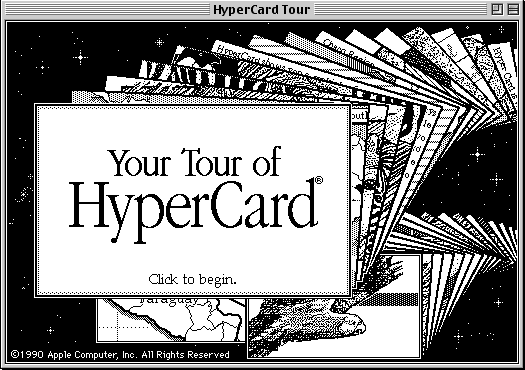One of the earliest hypermedia systems which predated the world wide web was called HyperCard on the Macintosh. Within minutes you could have a small application to do just about anything, calendar, address book, interactive books, games, etc. The internet archive has collected many HyperCard stacks and emulates them directly in the browser.

Riding on the success of HyperCard was another hypermedia tool called MetaCard, which later became Runtime Revolution. Today it is known as LiveCode, a cross-platform application development system. LiveCode is often used to quickly create applications which can run on many platforms including iOS. It is popular with students and higher education. The LiveCode source was opened for a time instigated by a successful kickstarter program, but closed in 2021 as the company struggled to keep paying customers.
Each LiveCode version produced unique files for each of the major versions. Currently none of the formats can be identified using preservation tools. Luckily, because the code was open-source for a time, we have details which helps us identify the formats. Let’s take a look:
#define kMCStackFileMetaCardVersionString "#!/bin/sh\n# MetaCard 2.4 stack\n
#define kMCStackFileVersionString_2_7 "REVO2700"
#define kMCStackFileVersionString_5_5 "REVO5500"
#define kMCStackFileVersionString_7_0 "REVO7000"
#define kMCStackFileVersionString_8_0 "REVO8000"
#define kMCStackFileVersionString_8_1 "REVO8100"I took LiveCode up on their 10 day trial and was able to install software version 9.6.9 to save some samples. The software has a “Save as” option which allows you to save your code to older versions. Although one must be careful as saving to older versions may have some data loss.


The samples I was able to save had matching headers just like in the source code. The REVO string starts right at the beginning of the file making identification easy. Take a look at my GitHub page for samples and signature. Also check out the File Format Wiki Page for more information and more samples!